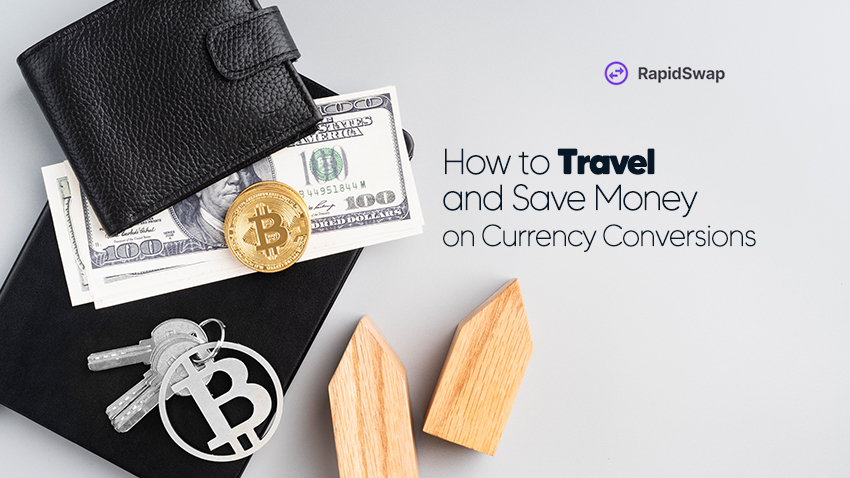Traveling to new destinations is an exciting adventure, but one challenge that often comes with international travel is dealing with currency conversions. The process of exchanging money can quickly become expensive if you’re not careful, with hidden fees and unfavorable exchange rates eating into your travel budget. However, with some planning and smart strategies, you can minimize these costs and make the most of your money while exploring new places. In this guide, we’ll explore practical tips and methods to help you travel more economically by reducing currency conversion expenses.
Understanding Currency Conversion Fees
Before diving into strategies for saving money, it’s essential to understand how currency conversion works and where the costs come from. Currency conversion involves exchanging one country’s currency for another. This process is usually accompanied by fees that financial institutions or currency exchange services charge for facilitating the transaction. There are two primary types of costs associated with currency conversion:
- Exchange Rate Markups: The exchange rate you see online or in financial news isn’t necessarily the rate you’ll get when converting money. Banks and exchange services often add a markup to the rate to make a profit, meaning you’ll receive less foreign currency for your money.
- Transaction Fees: In addition to the exchange rate markup, banks, ATMs, and currency exchange services may charge a flat fee or a percentage of the amount exchanged as a transaction fee. These fees can add up quickly, especially if you’re converting money multiple times during your trip.
Tips for Saving Money on Currency Conversions
- Use a Multi-Currency Account or Card
One of the most effective ways to save money on currency conversions is by using a multi-currency account or card. These accounts allow you to hold multiple currencies simultaneously and convert money at better rates than traditional banks. With a multi-currency card, you can spend directly in the local currency without incurring additional fees, making it a convenient and cost-effective option for frequent travelers.
- Avoid Airport Currency Exchange Booths
Currency exchange booths at airports are notorious for offering poor exchange rates and high fees. While they might seem convenient, the rates they offer are often far worse than what you’d get elsewhere. If you need cash upon arrival, withdraw a small amount from an airport ATM instead and find a better exchange service in the city.
- Use Local ATMs Wisely
Withdrawing money from local ATMs can be a good option, but it’s important to choose the right ATMs and be aware of the fees. Some ATMs charge high withdrawal fees, especially if they belong to a different network than your home bank. To minimize costs, use ATMs that partner with your bank, as they often have lower fees or none at all. Also, always choose to be charged in the local currency rather than your home currency to avoid dynamic currency conversion fees.
- Opt for a Credit Card with No Foreign Transaction Fees
Many credit cards charge a foreign transaction fee, typically around 2-3%, on purchases made abroad. This fee can add up quickly if you use your card frequently. To avoid this, consider applying for a credit card that doesn’t charge foreign transaction fees. Such cards also often come with additional travel perks, such as travel insurance, rewards points, and concierge services.
- Compare Exchange Rates Before Converting Money
When you need to exchange cash, take the time to compare rates from different providers. Banks, currency exchange services, and even some hotels offer currency conversion services, but the rates can vary significantly. Use online tools or apps to compare rates and find the best deal. If possible, avoid converting large sums all at once and instead exchange smaller amounts as needed to take advantage of fluctuating rates.
- Use Online Money Transfer Services
If you need to transfer money internationally or exchange currency before your trip, consider using online money transfer services. Companies like TransferWise (now Wise), Revolut, and others offer better exchange rates and lower fees compared to traditional banks. These services are especially useful for larger transactions, such as paying for accommodations or transferring money to a local bank account.
- Consider Prepaid Travel Cards
Prepaid travel cards allow you to load money onto the card in your home currency and then convert it to the currency of your destination at a locked-in exchange rate. These cards can be a good option if you want to avoid the risk of fluctuating exchange rates during your trip. However, be sure to check for any fees associated with loading, spending, or withdrawing money with the card.
- Plan Your Withdrawals
If you’re planning to use cash during your trip, think about how much you’ll need and plan your withdrawals accordingly. Frequent small withdrawals can result in higher fees, so it’s better to withdraw larger amounts less frequently. Just be mindful of safety when carrying larger sums of money.
- Use Mobile Payment Solutions
In some countries, mobile payment solutions like Apple Pay, Google Pay, or local equivalents are widely accepted and can offer favorable exchange rates with minimal fees. These options allow you to pay directly from your mobile device, reducing the need for cash and avoiding some of the fees associated with currency conversion.
Traveling doesn’t have to be expensive, especially when it comes to currency conversion. By understanding how exchange rates and fees work and employing these smart strategies, you can keep more of your hard-earned money for the experiences that matter most during your travels. Whether it’s using the right card, choosing the best place to exchange money, or taking advantage of modern payment solutions, these tips will help you travel more economically and enjoy your journey without worrying about unnecessary costs.

